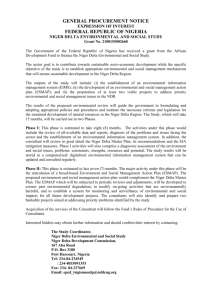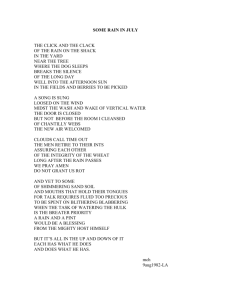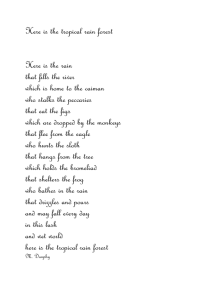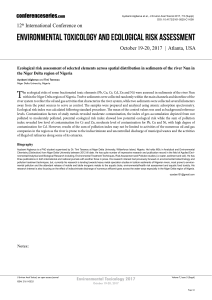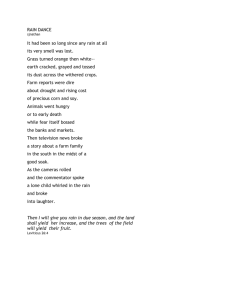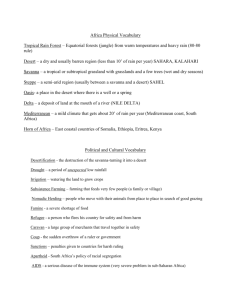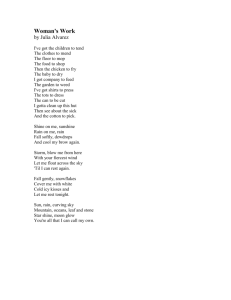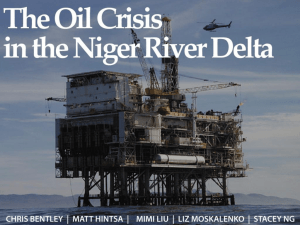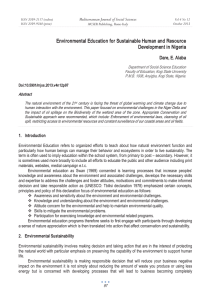Africa Physical II
advertisement
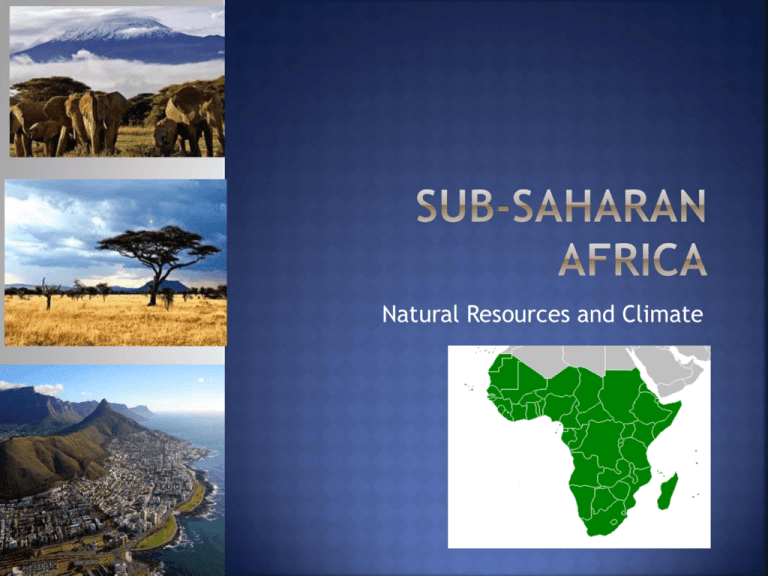
Natural Resources and Climate Story of plenty and scarcity Africa has a large amount of the world’s minerals, but many countries lack the industrial base or money to develop them Major source of conflict in the area One of the world’s richest continents Large amounts of gold, platinum(South Africa80%), chromium (South Africa, world largest producer), cobalt (42 % of world’s supply), copper, diamonds, and many others Ores and minerals account for ½ of export value. This mineral wealth hasn’t meant economic prosperity for most of the population. 19th-20th century European colonialism to develop these resources, many nations have been slow to develop infrastructure and industries as a result. Nigeria is a leading petroleum producer, Angola and Gabon have developing petroleum industries. Rain Forests to roaring rivers= diversity Coffee, 2nd most profitable commodity (20%) Lumber Sugar, palm oil, cocoa Agriculture- single most important economic activity (1/3 of exports). 66% earn their living via agriculture Most of Sub-Saharan Africa lies between the tropics of Cancer and Capricorn (90%), has a tropical climate with warm temperatures. This area experiences two seasons (2 wet, 2 dry), defined by rainfall, the temperatures never drop below freezing. Why is that important? In temperate zones rain is reliable (North), but in other areas it can be very unreliable. Drought= fact of life (especially in the East) Oil discovered here in 1956. Rich deposits in the Niger Delta made the country one of the wealthiest in Africa. However, the drilling for oil leads to damaged land and a threat to the human population. Today, Nigeria is the 6th leading oil exporter in the world = 80-90% of income. Extract 2 million barrels per day, most going to the U.S. In the 1970s high oil process led the g’ment to borrow heavily for the future sell of oil, but the prices fell. Mismanagement, poor planning, corruption, and declining prices = economic decline. Ethnic conflicts and resentment from oil wealth More than 4,000 oil spills occurred in the Niger Delta over the past 4 decades. Cleanup operations have been slow, sometimes nonexistent Fires often result, acid rain is produced, respiratory diseases. Pipeline explosions killed more than 2,000 ppl. (1998-2000)- bandits trying to resell oil. Largest amount of funds for conservation 4th largest island One of the richest ecologies, with 25% of the flowering plants in Africa
